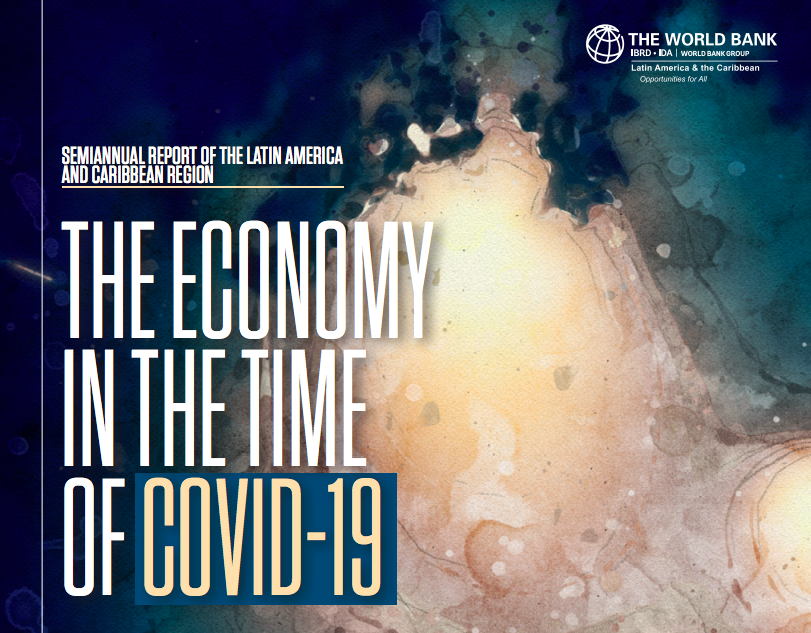Coherent Policy Response Needed to Overcome Coronavirus Crisis in Latin America and the Caribbean
Media Release Courtesy The World Bank
WASHINGTON — The Latin America and Caribbean (LAC) region is seeing a sharp decline in growth due to the Covid-19 (coronavirus) crisis, which requires several policy responses to support the most vulnerable, avert a financial crisis, and protect jobs, according to a new report form the World Bank.
To help the vulnerable face the loss of earnings from the lockdown, existing social protection and social assistance programs should be rapidly scaled up and their coverage extended, according to “The Economy in the Time of Covid-19,” the latest semiannual report from the World Bank’s Chief Economist Office for Latin America and the Caribbean.
At the same time, governments may need to support financial sector institutions and key sources of employment.
“We need to help people face these enormous challenges and make sure that financial markets and employers can weather the storm,” said Humberto López, World Bank Acting Vice President for the Latin America and the Caribbean Region. “That means limiting the damage and laying the groundwork for recovery as fast as possible.”
A series of shocks hit economic growth in LAC over the past year starting with social unrest, the collapse of international oil prices, and now the COVID-19 (coronavirus) crisis. Growth is suffering as a result.
Gross Domestic Product (GDP) in the Latin America and Caribbean region (excluding Venezuela) is expected to be -4.6% in 2020, according to the report.* A return to growth of 2.6% is expected in 2021.
The coronavirus pandemic is fueling a major supply shock. Demand from China and G7 countries is falling dramatically, affecting commodity exporters in South America and exporters of manufactured goods and services in Central America and the Caribbean. A collapse in tourism is severely impacting some countries
in the Caribbean.
Many countries in LAC are confronting the crisis with a constrained fiscal space. Higher levels of informality make it difficult to reach out to all households and protect all sources of employment. Many households live from hand to mouth and do not have the resources to cope with the lockdowns and quarantines needed to contain the spread of the pandemic. Many also depend on collapsing remittances. To help the vulnerable face this economic challenge, existing social protection and social assistance programs should be rapidly scaled up and their coverage extended.
At the same time, governments will have to take on the burden of much of the losses. Socializing the losses may require taking ownership stakes in financial sector institutions and strategic employers through recapitalization. This support will be key to preserving jobs and allowing for a recovery.
However, these processes need to be transparent and strong arrangements need to be put in place to manage the newly acquired assets, building on the best examples of sovereign wealth funds and asset management companies.
“Governments across Latin America and the Caribbean face the enormous challenge of both protecting lives and limiting the impact of the economic fallout,” said Martín Rama, World Bank Chief Economist for the Latin America and the Caribbean region. “This will require coherent, targeted policies on a scale rarely seen before.”
World Bank Group Global Support to Face the Coronavirus Crisis:
The World Bank Group is taking broad, fast action to help developing countries strengthen their pandemic response, increase disease surveillance, improve public health interventions, and help the private sector continue to operate and sustain jobs. It is deploying up to $160 billion in financial support over the next 15 months to help countries protect the poor and vulnerable, support businesses, and bolster economic recovery.
*Due to the COVID-19 pandemic, economic circumstances within countries and regions are fluid and change on a day-by-day basis. The analysis in the report is based on the latest country-level data available as of April 10, 2020.
